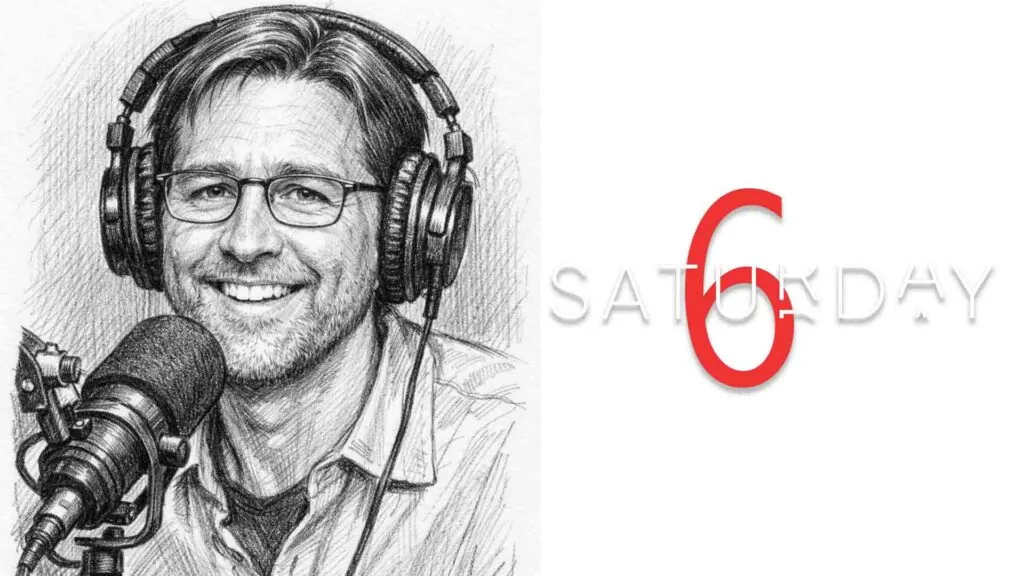“Research” that opposes God’s law will be exposed…. eventually
*****
When an immoral agenda is being advocated on the basis of “scientific” evidence, there is good reason to be suspicious. Science has a certain aura to it in Western societies, so promoting a particular view as being the “scientific” one is a clever strategy. However, sometimes the scientific veneer is just a Trojan Horse. This has been the case with some of the most influential social science of the twentieth century.
Perhaps more than any other single individual, Professor Alfred C. Kinsey of Indiana University could be blamed (or credited) with the breakdown of traditional morality in the USA and other major English-speaking countries. Kinsey was a pioneer “sex researcher” who published two ground-breaking studies, one on male sexual behavior (1948) and the other on female sexual behavior (1953), which rocked the Western world and led to the liberalization of laws regulating sexual conduct in the USA and other countries. That’s a notable accomplishment for one man.
During much of the twentieth century science was seen as providing the answers to many of humanity’s problems, so any perspective couched in the language of science received instant respect and credibility. Kinsey was able to take advantage of this prevailing attitude to push his own personal political agenda of sexual freedom. He correctly figured that scientific data “proving” that most people were secretly promiscuous in one way or another would provide a powerful impetus to overthrow traditional conservative views.
Kinsey thus conducted his “research” in such a way that it would produce the results he wanted.
Judith Reisman unmasks Kinsey
Beginning in the 1980s another American researcher, Dr. Judith Reisman, began uncovering the real truth behind Kinsey’s work. She discovered the deliberately fraudulent basis of Kinsey’s influential studies and began to actively alert people to the fact that many changes in American law and culture had been initiated on the basis of this fraud. Dr. Reisman’s work is very important but she is yet to receive the attention and credit that she is due for her efforts. This work has been summarized in a small book – just 84 pages – by Susan Brinkmann, called The Kinsey Corruption: An Expose on the Most Influential “Scientist” of Our Time.
There are many reasons to be outraged over Kinsey’s research, but we will touch on just two of them here.
1) He skewed his data
Social science research often involves surveys of the general public. A large group of people is given a set of particular questions, then the answers to those questions are compiled and the survey results are considered to be empirical evidence regarding the issue being studied. Presumably the group of people surveyed is representative of the wider population.
With this in mind it’s not too difficult for an unethical researcher to produce research that will give him the specific results he wants. If he knows beforehand that certain people are likely to give him particular answers to his questions, he can target those people for his survey so that he deliberately gets a larger proportion of them in his survey sample. Thus the results of his “scientific” study will be heavily weighted in favor of the results he wants. This is basically what Kinsey did.
Kinsey’s research was based on survey data which he claimed represented the American population. But it did not represent the American population, and he knew it. His data included a disproportionately large percentage of people who engaged in sexually immoral behavior.
“In an outrageous example, Kinsey classified 1,400 criminals and sex offenders as ‘normal’ on the grounds that such miscreants were essentially the same as other men – except that these had gotten caught.”
So the information about sexual behavior provided by these 1,400 degenerate men was considered to represent the sexual behavior of average American males.
When it’s understood how Kinsey undertook much of his research, it’s not surprising that according to his,
“skewed data, 95 per cent of the American male population regularly indulged in deviant sexual activities such as extra-marital affairs, homosexuality, pedophilia, etc.”
2) He relied on rapists’ “data”
More outrageous, however, is the way Kinsey obtained data about children’s sexual behavior. In short, children were sexually abused and the abusers would then provide information to Kinsey. One of the chief sources of information about children “was later discovered to be Rex King, the serial child rapist responsible for the rapes of more than 800 children.”
Kinsey in Canada
Reisman’s research focuses primarily on the USA where Kinsey worked and had the most obvious impact. However, Kinsey’s influence spread throughout the English-speaking world. Here in Canada, Kinsey’s studies have been used to justify cultural and legal changes as well.
In 1969 Canada’s law was changed to legalize homosexuality. In the debates over this change, Kinsey was cited as an authority. For example, in the House of Commons on January 23, 1969, one MP read from an article stating that, “Homosexuality is now known to be much more widespread than was thought in the past, as the researches of Dr. Kinsey and others have shown.” He goes on to say that, Dr. Kinsey concluded “that 37 per cent of the male population of the United States had had some homosexual experience between the beginning of adolescence and old age.” This MP then refers to Kinsey further.
One of the documents cited most commonly in favor of legalizing homosexuality in Canada was the Wolfenden Report. This report was an official document produced in the 1950s for the British government recommending liberalization of laws relating to prostitution and homosexuality. In England, the recommendations on prostitution were implemented in 1959 and the recommendations for homosexuality were implemented in 1967.
The Wolfenden Report was widely seen as very authoritative and it was unquestionably influential in the changes made to Canada’s law on homosexuality. In the House of Commons on January 24, 1969, one Liberal MP pointed out that the government’s proposals for legalizing homosexuality were based on the “recommendations of the Wolfenden committee.” He goes on to point out that the government’s perspective is “very close to the philosophy of the Wolfenden Report.” Throughout the Parliamentary debate, the Wolfenden Report is cited over and over again.
Why is this relevant? Because Alfred Kinsey’s “research” on homosexuality was a source for the Wolfenden Report itself. The committee that produced the Wolfenden Report considered Kinsey to be an authority on homosexuality and freely referred to his work. In this respect, Kinsey indirectly influenced the change in Canadian law through his impact on the Wolfenden Report.
In 1982 Canada adopted the Charter of Rights and Freedoms. However, the federal and provincial governments were given three years to bring their laws into conformity to the Charter’s provisions on equality rights before they came into effect. A Parliamentary committee on equality rights traveled the country in 1985 to get citizen feedback on how the Charter’s equality provisions should be interpreted. Numerous homosexual activists made presentations to this committee advocating their perspective. It was common during these presentations for the activists to refer to Kinsey’s research as a justification for homosexual rights.
For example, during a presentation to the committee in Vancouver on May 27, 1985, an activist claimed, “Approximately 10% of the population in Canada is gay.” Subsequently, MP Svend Robinson asked the presenter, “You made reference to 10%. I assume this is based on the studies by Kinsey and a number of others.” The activist replied, “That was the Kinsey Report, the 1948 studies, yes.”
Another activist testified before the committee in Winnipeg on May 30, 1985, stating that
“Our individual and collective experience has provided us with every reason to think that the statistics deduced by the Kinsey Institute in the 1940s were correct: that about 10% of the population is homosexual.”
On that same day another activist said, “Statistically, the invisible homosexual minority makes up approximately 10% of the population of this country.” And in yet another presentation, a United Church minister remarked, “We point out that about 10% of the population, according to sociological figures, are of homosexual orientation.”
The point here is that Kinsey’s studies were viewed as pertinent and relevant to the advancement of homosexual rights here in Canada. His data provided an apparent scientific authority for arguments in favor of homosexual rights. But Kinsey had deliberately skewed his research to get the kind of figures that would support the changes in law and culture that he desired.
Kinsey: the movie
Some liberals have been concerned about the erosion of Kinsey’s credibility that has resulted from Reisman’s efforts. A Hollywood movie (appropriately entitled Kinsey) was made in 2004 to bolster Kinsey’s reputation. It starred Liam Neeson as Kinsey himself.
You won’t learn about his fraud in this movie, though. Brinkmann writes that this movie “presents the life and work of Alfred C. Kinsey in the most glowing terms. Instead of presenting the facts, it glorifies him as a persecuted hero who found himself trapped in a world of sexual repression.”
Conclusion
Brinkmann notes in the conclusion of her book that the “legacy of Alfred C. Kinsey’s twisted life and work can be read daily in the ever-worsening moral condition of our country.” Of course, Kinsey alone cannot be blamed for the moral decline of the Western countries, but he certainly deserves more blame than just about anybody else.
Kinsey is still widely recognized as an authority on sexual behavior despite the fact that the truth has begun to come out – his research is not reliable.
This provides good grounds to be suspicious of “studies” promoting various aspects of modern sexual promiscuity, whether homosexual or heterosexual. When viewed carefully, many studies purporting to support various trendy views will be found to be faulty. Most researchers aren’t unethical like Kinsey. But all researchers (whether left-wing or right-wing) are influenced by their worldview – their studies will likely confirm their preconceived views. Social science is not like physical science where you can get precise measurements that are repeatable, giving exactly the same results every time. Social science is much more subjective than that.
In other words, the rule “don’t believe everything you read” should be doubly applicable whenever the media reports a new study allegedly demonstrating that monogamy among human beings is unnatural, or that homosexual couples are better parents than heterosexuals, and other such things. Sure, that’s what the study concluded. But you have good grounds for being skeptical about the study itself. These kinds of studies have been flawed or “fixed” before, so the rational response is skepticism.
This was first published in the March 2015 issue.












